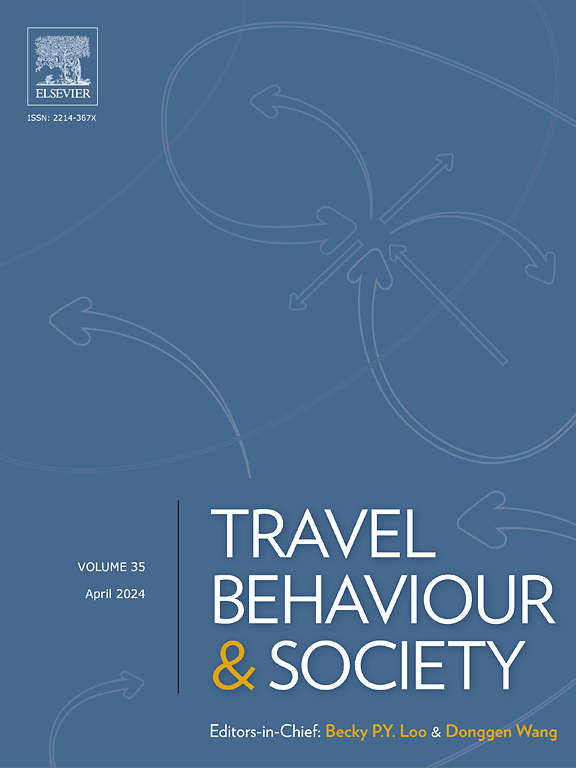伦理困境下公交车司机对4级自动驾驶公交车的接受意向:一个扩展的技术接受模型
IF 5.7
2区 工程技术
Q1 TRANSPORTATION
引用次数: 0
摘要
随着无人驾驶技术在私家车领域的发展,无人驾驶巴士的研究也受到了全球的关注。目前大多数研究都集中在乘客的需求和态度上,很少关注直接操作这些车辆的司机。本研究考察了当前使用4级自动驾驶公交车的公交车司机在不同运营场景下的态度和行为意图。通过将技术接受模型扩展到包括信任和兼容性,并将其与综合道德决策框架(IEDMF)集成,该研究分析了驾驶员在道德困境中使用人工智能系统的意图。这种理论整合提供了对理性和直觉道德推理如何在伦理背景下影响技术接受的全面理解。结构方程模型表明,在这种情况下,感知有用性和易用性是影响自动驾驶公交车驾驶员操作的关键因素。该研究还揭示了城市和城际公交司机在道德困境下的决策行为存在显著差异,城市司机更倾向于依赖人工智能进行道德判断,并在危急情况下优先考虑行人安全。这些发现强调了有针对性的培训计划的重要性:城市公交司机应该关注城市安全和步行区的道德考虑,而城际司机应该加强他们管理长途驾驶道德和高速公路困境的策略。此外,该研究强调了投资强大的人工智能系统的必要性,这些系统能够在压力下做出道德决策,并倡导将各种道德框架整合到这些系统中,以更好地反映社会价值观和规范,为自动驾驶公交车的未来运营提供指导。本文章由计算机程序翻译,如有差异,请以英文原文为准。
Bus drivers’ intention to accept level 4 autonomous buses in ethical dilemmas: An extended technology acceptance model
As autonomous driving technology progresses in the private vehicle sector, research on autonomous buses is gaining global attention. Most studies currently focus on passenger needs and attitudes, with less attention given to the drivers who directly operate these vehicles. This study examines the attitudes and behavioral intentions of current bus drivers under different operational scenarios using Level 4 autonomous buses. By extending the Technology Acceptance Model to include trust and compatibility and integrating it with the Integrative Ethical Decision-Making Framework (IEDMF), the study analyzes drivers’ intentions to use AI systems in moral dilemmas. This theoretical integration provides a comprehensive understanding of how rational and intuitive moral reasoning influence technology acceptance in ethical contexts. Structural equation modeling indicates that perceived usefulness and ease of use are critical factors influencing drivers’ operations of autonomous buses in such contexts. The research also reveals significant differences in decision-making behaviors between urban and intercity bus drivers in moral dilemmas, with urban drivers more likely to rely on AI for ethical judgment and prioritize pedestrian safety in critical situations. These findings highlight the importance of targeted training programs: urban bus drivers should focus on urban safety and ethical considerations of pedestrian areas, whereas intercity drivers should enhance their strategies for managing long-distance driving ethics and highway dilemmas. Furthermore, this study underscores the necessity of investing in robust AI systems capable of making ethical decisions under pressure and advocates for integrating diverse ethical frameworks into these systems to better reflect societal values and norms, providing guidance for the future operation of autonomous buses.
求助全文
通过发布文献求助,成功后即可免费获取论文全文。
去求助
来源期刊

Travel Behaviour and Society
TRANSPORTATION-
CiteScore
9.80
自引率
7.70%
发文量
109
期刊介绍:
Travel Behaviour and Society is an interdisciplinary journal publishing high-quality original papers which report leading edge research in theories, methodologies and applications concerning transportation issues and challenges which involve the social and spatial dimensions. In particular, it provides a discussion forum for major research in travel behaviour, transportation infrastructure, transportation and environmental issues, mobility and social sustainability, transportation geographic information systems (TGIS), transportation and quality of life, transportation data collection and analysis, etc.
 求助内容:
求助内容: 应助结果提醒方式:
应助结果提醒方式:


